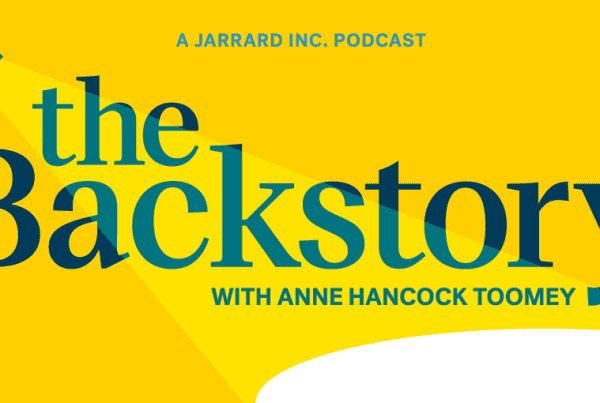The Big Story: Climate Doom Is Out. ‘Apocalyptic Optimism’ Is In.
“Will a more upbeat approach show a way forward?… ‘There’s room for screaming, and there’s room for dreaming.’”
Ending Healthcare’s Hunger Games
By David Jarrard
5-minute read
Our healthcare industry needs a shot of “apocalyptic optimism.”
Cynicism is the easy, heart-wrenching position today.
Pick your poison. The outrageous cost of care. Rube Goldbergish payment systems. Inequitable access and quality. Massive profits here, closed services there. Workforce depletion and exhaustion. Eroding trust. Short-term, tribal solutions to entrenched, systemic problems.
Daily doomscrolling through healthcare headlines can be a Sisyphean meditation on despair.
“I don’t detect optimism around me anymore,” says columnist Frank Bruni, writing in The Atlantic about today’s Politics of Pessimism.
“In its place is a crisis of confidence, a pervasive sense among most Americans that our best days are behind us, and that our problems are multiplying faster than we can find solutions for them. It’s a whole new American pessimism.”
He could be writing about healthcare. The challenges in our complex industry can feel intractable.
On bad days, the story we tell ourselves about tomorrow is not a good one. The industry’s economic ecosystems rely on fragile, moribund models supporting an infrastructure built for an earlier era. Real transformation is hard and slow, even as the pace of change accelerates.
“Consulting firms are projecting a bleak decade for health systems,” Axios’ Caitlin Owens wrote last week, calling threat “existential.”
“Without adaptation,” she says, “hospitals may be facing deep red balance sheets in the not-too-distant future, leading to facility closures and shuttered services.”
Surrounded by critics, grandstanding pols and upstart competitors, our big-picture playbooks can lean heavily on defensive, rear-guard actions, protecting a shrinking pie and bracing ourselves against the fallout of an insistent future.
It can be a tale of grievance and woe with a sour ending. Or it can be a tale of hope that propels, drives, catalyzes.
A Brave and Necessary Act
Healthcare needs a better story. One that’s expansive, vigorous. A confident vision for the industry that can be jolted into life by an infusion of apocalyptic optimism.
“The whole point of apocalyptic optimism is being optimistic in a way that actually helps get us somewhere,” says Dana Fisher, reflecting on how to stir action to address another fateful crisis laced with dread: climate change.
“In this sense, hope is a spur, a prod, an uncomfortable goad. It’s not shiny and rosy and like cotton candy. It’s a bitter pill. But here we are, and we can do something. Imagining a better future is a brave and even necessary act.”
Her point – shared by climate change apocalyptical optimists – is to insist that “hope matters.”
These advocates “believe optimism, however qualified or hard-won, may be what finally moves us to action,” says The New York Times. “Intimations of doom have failed to motivate us. Perhaps we will work toward a better future if we trust that one is possible.”
Not cotton candy happy talk
“Apocalyptic optimism” is a new phrase for an old idea of pragmatic optimism that is fundamental to being a compelling leader in challenging times.
“I think any business leader worth any value today has to embody optimism,” says business guru Simon Sinek, emphasizing that this brand of hopefulness is not to be confused with blind positivity.
“Optimism is the undying belief that the future is bright but is realistic about the challenges. If we work together and take care of each other, we will come out stronger than when we went in. The only way to get through darkness is together.”
Jim Collins agrees. In Good to Great, the classic industry study of successful companies and the leadership required to sustain them, he implores true visionaries to “face the brutal facts.”
“Every good-to-great company [we studied] embraced the “Stockdale Paradox,” writes Collins, referencing the harrowing experience of Admiral Jim Stockdale while a prisoner during the Vietnam War.
While Stockdale led many to survive imprisonment, others died in captivity. Stockdale said it was the blind optimists who didn’t make it out, as they repeatedly despaired when release failed to happen when they hoped it would. “They died of a broken heart,” he said.
“You must never confuse faith that you will prevail in the end – which you can never afford to lose – with the discipline to confront the most brutal facts of your current reality, whatever they might be,” Stockdale said.
Could healthcare leaders dare to embrace such muscular optimism?
“Many leaders worry that trying to emphasize positivity and happiness will make them look out of touch – and rather than helping their people, it will backfire,” says Harvard Business Review in What Leading with Optimism Really Looks Like, reporting on a multi-research project at Genesis Health System in Iowa.
Yet the findings show quite the opposite. “It’s precisely in the midst of a setback or challenging time, that leaders should be actively encouraging positivity because it will help teams weather the storm,” HBR says.
Powerful Optimism Starts with a Story
Without a powerful and generous vision for healthcare’s future, we won’t achieve it. After all, if you don’t have a destination, you’ll never arrive. That’s true for your organization. It’s true for healthcare.
“Most of our stories about the future…are almost 100 percent dystopian,” says Avi Wallach, a futurist whose documentary series A Brief History of the Future is now running on PBS.
“From the movies, to the comics, to the TV shows, we’re always failing. The part of us that’s hardwired to see the negative things, our negativity bias, could kill us. We must envision what a thriving, flourishing ecosystem looks like in order to grow into it.”
We must envision a thriving, flourishing healthcare ecosystem in order to grow into it.
It’s a vision that goes beyond securing today’s model.
After all, people are builders and cultivators. And healthcare is a calling. The emotional heart of healthcare is not the ER or the ICU, as critical as they are. It’s the nursery, where the future is being cradled. It’s for them that we dare to imagine a better tomorrow for this critical, high-stakes, most heroic of industries.
Healthcare deserves that vision.
Who authors the story that healthcare needs now?
We each do. How we treat one another today ripples consequentially into the future. Hugging a child. Taking thoughtful care of a patient. Being kind to a colleague at the nurse’s station. Or choosing to do the opposite. Each of us co-authors what tomorrow will be.
“Our daily interactions with family, colleagues, partners and the emotional heirlooms we inherit – these things greatly influence everyone around us as well as future generations,” says Wallach. “Be intentional with life changes. They matter beyond the present, potentially for thousands of years.”
Our organizations own this story, too. Each needs a robust vision for its future. That vision becomes the narrative to which your colleagues, patients, communities and investors are drawn.
Last week’s bleak Axios story – with the graphic of a hospital bed rolling down a declining red arrow – notes there are pockets of encouraging transformation scattered across the industry. Of course there are. Providers of all stripes are driving elements of forward-thinking innovation through transformative models, creative partnerships and new technology.
But the big story of the future – that apocalyptic, optimistic vision for healthcare? This is the work of our industry writ (very) large – providers, payers, employers, clinicians, patients. An un-siloed industry, united in the development of a mission-driven story that extends beyond our primary service areas and quarterly earnings reports.
A fantasy, you may fairly think. No organization is financially incentivized to plan for seven generations away. The market does not reward it. Our medical and business schools rarely teach us to plan and act as ancestors to our grandchildren’s grandchildren.
Sounds woo-woo, right? It’s easy to frown away such talk as unreasonable.
True. Yet. Progress is only made by unreasonable leaders, those who refuse to accept what today’s metrics and rationale demands. Those who have the courage to be different.
Can we set aside our industry Hunger Games to write a practical, hopeful story together? The act itself would be one of apocalyptic optimism. Can we collectively draft a meaningful letter to the future?
Contributors: David Shifrin, Emme Nelson Baxter
Image Credit: Shannon Threadgill



